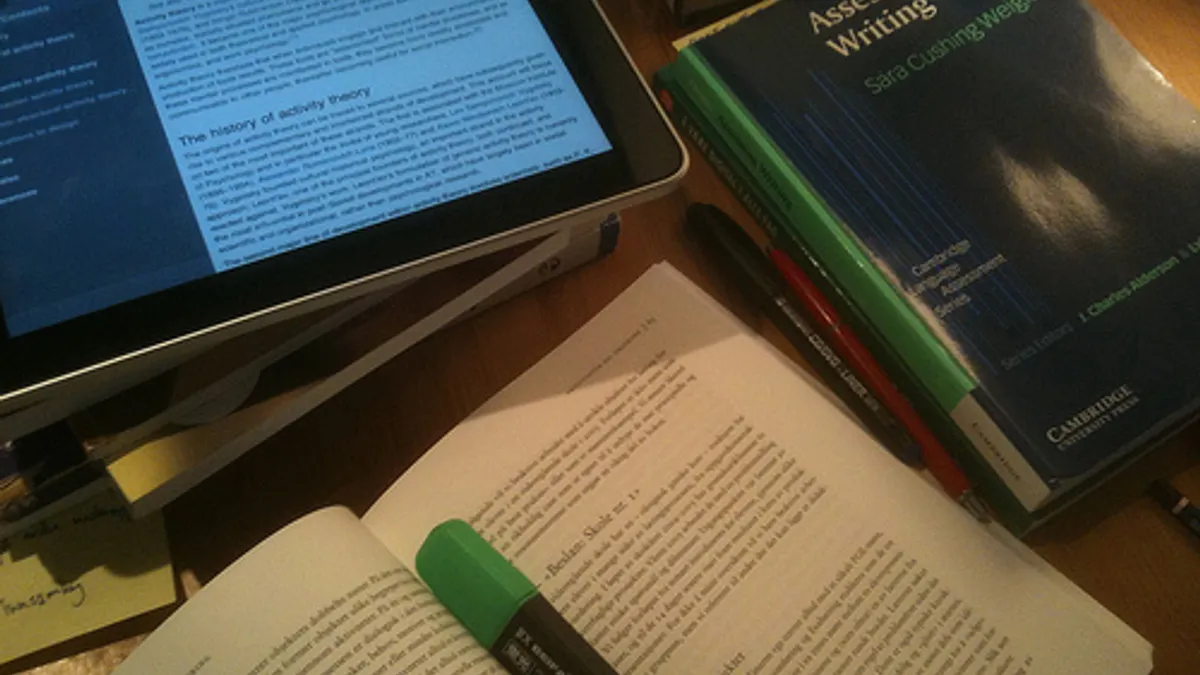Dive Brief:
-
National social studies publication Studies Weekly launched an internal review after a black 5th-grader from Tennessee was asked on a social studies homework assignment to write a few sentences from the viewpoint of a Southern cotton plantation owner in support of slavery, Education Week reports.
-
The publication has faced previous criticism for racial bias and insensitive course materials, and the review found more than 400 cases of racial or ethnic bias, historical inaccuracies, and other errors in material including historical inaccuracies.
-
Previously surfaced insensitive materials from the publication include a short narrative titled “Cotton Pickin’ Singing” and a suggested role-playing activity prompting students to roleplay as a slave.
Dive Insight:
Just last month, Studies Weekly published on its website a guide for creating a “multicultural curriculum” for a diverse body of students from different socioeconomic and ethnic backgrounds. Predominantly Eurocentric history and literature curricula, the company states, poses a challenge to this goal.
“That is a question we’ve been grappling with at Studies Weekly,” Karissa Neely, a specialist from Studies Weekly, states in the post. “In the past, some of our own publications included this unconscious bias.”
Recently, another major textbook company, Pearson, came under fire for mischaracterizations of slavery in one of its textbooks, “Prentice Hall Classics: A History of the United States.” The textbook, which has since been removed from print and is no longer in circulation, stated that some slave owners were “kind and generous;” that while many slaves were whipped, “a few never felt the lash,” and that many slaves “may not have even been terribly unhappy” with their treatment.
At the time, Pearson responded to the criticism by calling the views expressed in the textbook an “antiquated viewpoint, which is wrong, offensive, and long outdated.” The corresponding worksheet, which was unaffiliated with Pearson but was provided alongside the textbook to students and prompted them to list the “positive aspects” of slavery, was condemned by a state representative and the school superintendent.
In 2015, publisher McGraw-Hill apologized after a caption under one of its maps characterized the slave trade as an “immigration” of “workers,” and, one year later, destroyed copies of another textbook that portrayed “Palestinian loss of land” in the Israeli-Palestinian conflict.
Different districts across the nation have had varying responses to parents raising concerns over biased texts. In Kansas, one county held a board meeting after a parent voiced concern over insensitive course materials, replaced the curriculum with interim materials almost immediately, began a curriculum review for K-5th graders, and severed ties with Studies Weekly.
In other cases, such as in Texas, the state board of education approved textbooks for classroom use even after history and religious scholars’ review found biased statements against Muslims, neglecting Native Americans, and legitimizing Confederate slavery. Some schools even consider offering teachers sensitivity training. In San Antonio, Texas, a teacher who was suspended after assigning a controversial worksheet could only return to work after completing required training to increase multicultural awareness.
Paul C. Gorski, associate professor of integrative studies at George Mason University and founder of the EdChange project, says that mainstream curriculum, which is heavily focused on the Eurocentric male experience, negatively affects students from minority backgrounds by failing to validate their experiences and can further alienate students whose home cultures vary significantly from those in school.
In a comprehensive checklist for achieving a truly multicultural curriculum, Gorski recommends that curriculum be assessed “constantly” for accuracy and bias. He suggests encouraging collaboration between teachers and educators to examine and critique curricular units and lesson plans.
One way to ensure culturally sensitive school staff, environments and lesson plans is to focus on diversity in recruitment. Because so much of history is often condensed into a limited school calendar, it is also important to train existing staff not to oversimplify for the sake of convenience and at the expense of accuracy.













